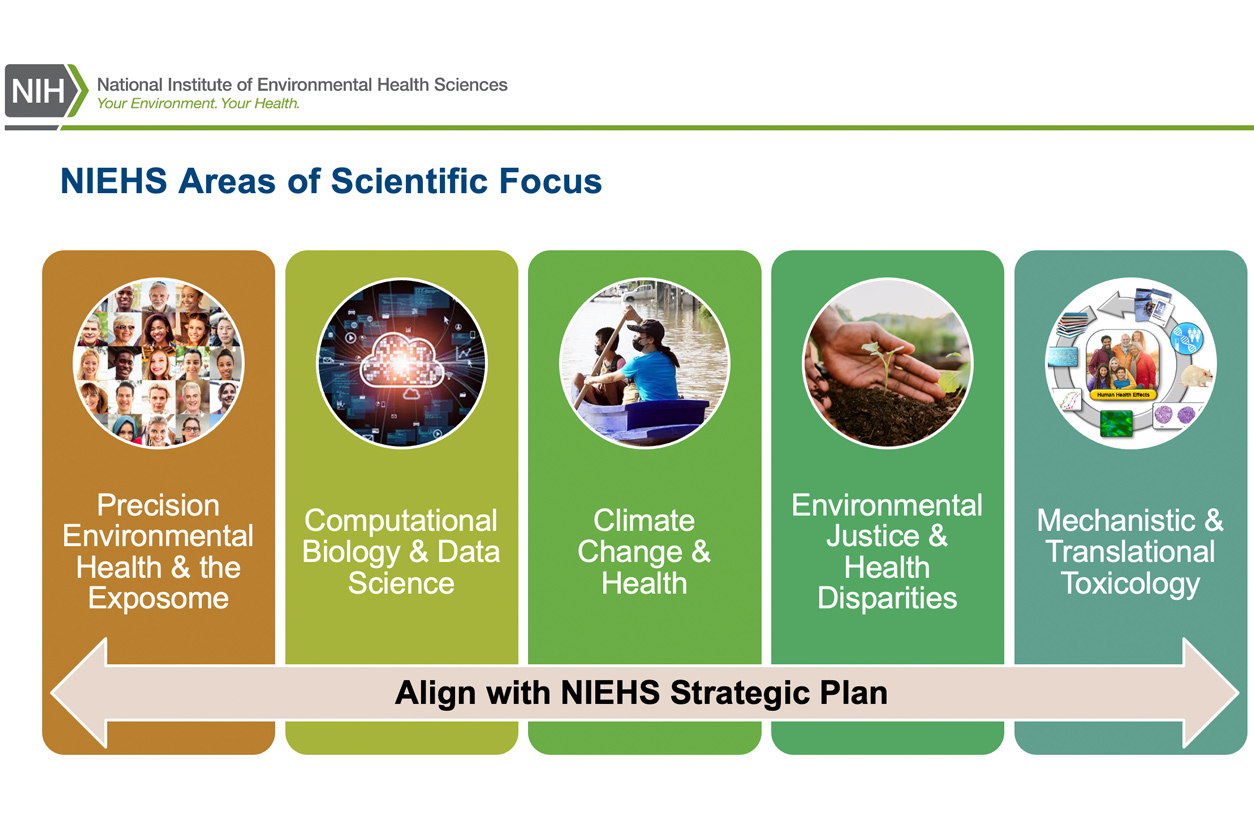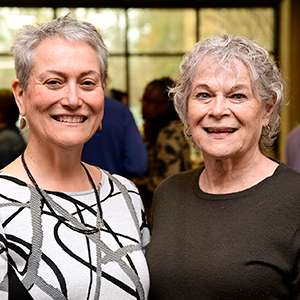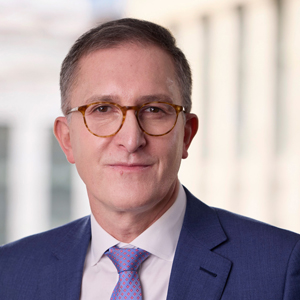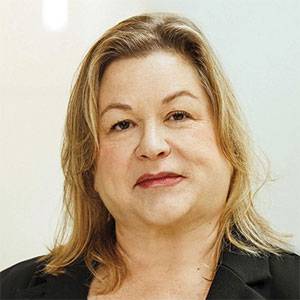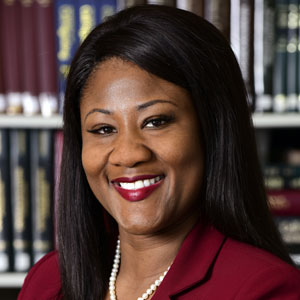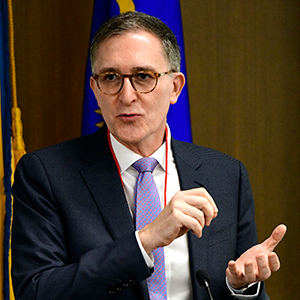Precision environmental health, the totality of our environmental exposures, new funding opportunities related to climate change and health (see sidebar), efforts to combat environmental health disparities, and report back of research results were among the topics discussed at the National Advisory Environmental Health Sciences Council meeting held June 7-8.
Precision environmental health and the exposome
NIEHS Director Rick Woychik, Ph.D., shared some scientific areas that have come into focus over the past couple of years. Those include precision environmental health and the exposome; computational biology and data science; climate change and health; environmental justice and health disparities; and mechanistic and translational toxicology.
Studying the exposome — the totality of an individual’s environmental exposures throughout the life course, and their corresponding biological changes — is critical for the advancement of precision environmental health, noted Woychik. The precision environmental health framework aims to prevent disease by shedding light on how individuals vary in their response to exposures based on their unique genetic, epigenetic, and biological makeup.
To expand knowledge in this area, NIEHS is hosting an upcoming workshop series titled “Accelerating Precision Environmental Health: Demonstrating the Value of the Exposome,” which will cover the following topics.
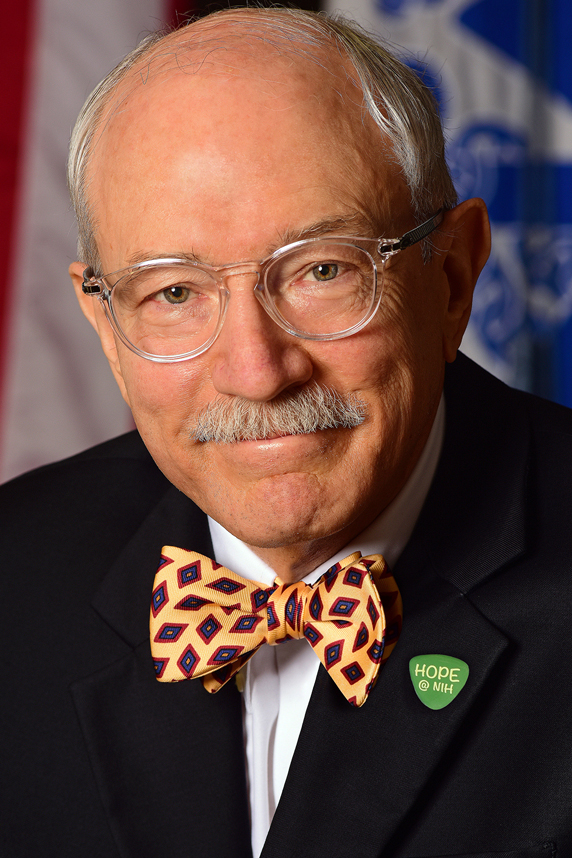 Woychik noted that the NIEHS Personalized Environment and Genes Study is helping to advance the precision environmental health framework. (Photo courtesy of Steve McCaw / NIEHS)
Woychik noted that the NIEHS Personalized Environment and Genes Study is helping to advance the precision environmental health framework. (Photo courtesy of Steve McCaw / NIEHS)- July 22 — Tools, Technologies, and Methodologies.
- August 5 — Biological Responses and Impact on Health and Disease.
- August 12 — Future of Clinical and Prevention Trials, Cohorts, and Epidemiology.
- August 19 — Social and Societal Impacts.
- August 26 — Data Infrastructure and Data Analytics.
To learn more about the workshops and to register, click here(https://tools.niehs.nih.gov/conference/exposomics2022/).
Accelerating research breakthroughs
Woychik also shared information about the Advanced Research Projects Agency for Health (ARPA-H), which is a new entity within the National Institutes of Health (NIH).
ARPA-H will advance breakthroughs in biomedical research by funding cutting-edge scientific studies and approaches. Council members discussed the importance of such funding for NIEHS grantees, especially early-stage investigators.
Helping underserved communities
On May 31, the U.S. Department of Health and Human Services (HHS) formally established a new Office of Environmental Justice (OEJ) in response to President Biden’s Executive Order on Tackling the Climate Crisis at Home and Abroad. OEJ will reside within the Office of Climate Change and Health Equity in the Office of the Assistant Secretary for Health.
Arsenio Mataka, J.D., a senior advisor to the assistant secretary, informed Council that OEJ will work to directly improve the wellbeing of underserved communities.
OEJ will lead HHS efforts to coordinate implementation of the Justice40 Initiative, which aims to deliver 40% of the overall benefits of federal investments in clean energy, water, transit, housing, workforce development, and pollution remediation to disadvantaged communities. The NIEHS Environmental Career Worker Training Program is participating in the Justice40 Initiative (see related story in this issue).
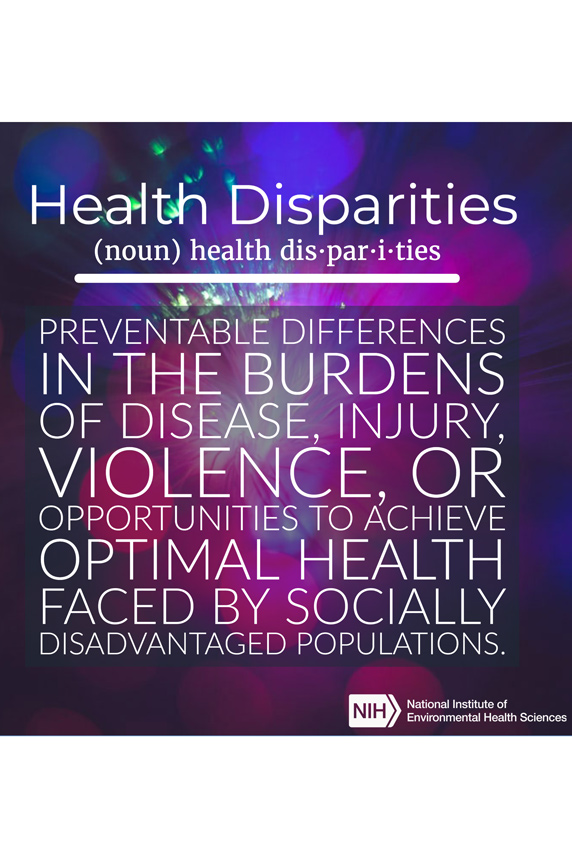 (Image courtesy of NIEHS)
(Image courtesy of NIEHS)Eliseo Pérez-Stable, M.D., director of the National Institute on Minority Health and Health Disparities (NIMHD), shared his institute’s research agenda on environmental health disparities. He outlined important NIMHD and NIEHS collaborations in this area, such as RADx Underserved Populations, an NIH program designed to reduce disparities in COVID-19 morbidity and mortality.
“There is a lot of overlap, and we have much in common,” Pérez-Stable noted regarding NIMHD and NIEHS. “We both have a strong sense of the importance of community engagement, and we’re both very interested in addressing issues of unequal care and social injustice in health and health care.”
NIEHS Division of Extramural Research and Training Deputy Director Pat Mastin, Ph.D., described the division’s longstanding commitment to addressing environmental health disparities and promoting environmental justice. He discussed recent NIEHS workshops on racism as a public health issue, advancing environmental health equity, and women’s health disparities.
Advancing environmental public health
NIEHS Partnerships for Environmental Public Health (PEPH) Program coordinator Liam O’Fallon gave an overview of the program’s achievements since its 2009 launch. PEPH includes a diverse network of scientists, community members, educators, health care providers, public health officials, and policymakers. Together, they work to address important health challenges and improve lives by translating research into action.
“PEPH has evolved into a community of practice for our grantees, partners, and NIEHS staff,” he said. “It helps to integrate ideas and practices, encourages learning from one another, and enables individuals to solve common problems.”
O’Fallon also highlighted an effort to promote report back of environmental health research results to study participants. He is working with NIEHS grantees Julia Brody, Ph.D., from the Silent Spring Institute, and Katrina Korfmacher, Ph.D., from the University of Rochester Medical Center, to develop guidelines and best practices that will make it easier for researchers to share findings, thereby empowering individuals to take steps to improve their health. (Check out this month’s NIEHS Director’s Corner column to learn more.)
(Ernie Hood is a contract writer for the NIEHS Office of Communications and Public Liaison.)





